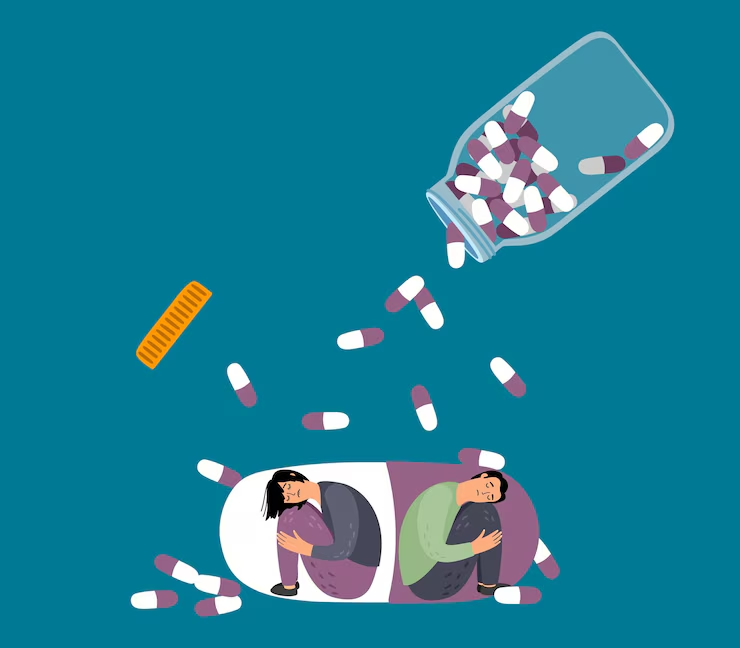




What is MDR?
MDR, or Multi-Drug Resistance, is a serious medical condition in which bacteria, viruses, parasites, or fungi develop resistance to multiple antibiotics or antiviral drugs. Learn more about its causes, risks, and preventive measures.

What is Multi-Drug Resistance (MDR)?
Multi-drug resistance (MDR) occurs when microorganisms become resistant to multiple antimicrobial drugs, making treatment challenging.
Key Facts:
Repeated exposure to antibiotics leads to resistance.
MDR is common in tuberculosis, bacterial infections, and even some viral diseases.
MDR increases mortality rates and treatment costs worldwide.
Causes of Multi-Drug Resistance
MDR is primarily caused by improper medication use and lack of infection control.
Common Causes:
Overuse of Antibiotics: Unnecessary prescriptions lead to bacterial adaptation.
Incomplete Treatment Courses: Stopping antibiotics early allows bacteria to survive and mutate.
Poor Infection Control in Hospitals: Healthcare-associated infections often involve MDR pathogens.
Use of Antibiotics in Livestock: Indiscriminate use of antibiotics in animal farming contributes to resistance.
Why is MDR a Major Health Concern?
The growing prevalence of MDR is a global health crisis due to its severe impact on disease treatment and public health.
Key Concerns:
Limited Treatment Options: Fewer effective drugs are available for resistant infections.
Longer Recovery Times: Prolonged illnesses increase patient suffering and healthcare costs.
Higher Mortality Rates: MDR infections lead to more deaths due to ineffective treatments.
Increased Healthcare Burden: Requires stronger, costlier medications and longer hospital stays.
Common Diseases Associated with MDR
Several infections have shown a high tendency for drug resistance.
Multi-Drug Resistant Tuberculosis (MDR-TB) - Resistant to first-line TB drugs.
Methicillin-Resistant Staphylococcus aureus (MRSA) - A major hospital-acquired infection.
Extended-Spectrum Beta-Lactamase (ESBL) Infections - Resistant to many antibiotics.
Carbapenem-Resistant Enterobacteriaceae (CRE) - Highly resistant bacterial infections.
Drug-resistant malaria & HIV - MDR is also a growing concern in these diseases.
How to Prevent Multi-Drug Resistance
Preventing MDR requires responsible medication use and better infection control practices.
Effective Prevention Strategies:
Only take prescribed medications and complete the full course.
Wash hands regularly and maintain proper sanitation.
Proper sterilisation and hygiene measures can reduce MDR infections.
Never take antibiotics without medical consultation.
Educating communities about drug resistance helps prevent misuse.
Conclusion - The Need for Stronger Measures Against MDR
Multi-drug resistance (MDR) is a growing global challenge that makes common infections harder to treat. The overuse and misuse of antibiotics have accelerated resistance, increasing health risks worldwide. Raising awareness, following proper medical guidelines, and improving infection control measures are essential to combating MDR and preventing future outbreaks.
FAQs on MDR Full Form -Multi-Drug Resistance
1. What is the full form of MDR?
MDR stands for Multi-Drug Resistance.
2. What causes Multi-Drug Resistance?
MDR is caused by overuse of antibiotics, incomplete treatment, and poor infection control.
3. Which diseases are commonly associated with MDR?
Diseases like tuberculosis, pneumonia, MRSA, and drug-resistant malaria are linked to MDR.
4. Can MDR infections be treated?
Yes, but treatment is more complex and requires stronger, limited antibiotics.
5. How can we prevent antibiotic resistance?
Responsible antibiotic use, infection control, and public awareness can help prevent resistance.
6. Is MDR only related to bacterial infections?
No, MDR affects bacterial, viral, fungal, and parasitic infections.
7. Why is MDR a global concern?
MDR reduces treatment effectiveness, increases healthcare costs, and leads to higher mortality rates.
8. Are there vaccines to prevent MDR infections?
While vaccines exist for some MDR-related diseases (e.g., TB, pneumonia, flu), proper antibiotic use remains key.
9. What role do hospitals play in MDR prevention?
Hospitals must enforce strict hygiene measures and limit unnecessary antibiotic prescriptions.
10. Can MDR be reversed?
While difficult, new treatments and controlled antibiotic use can slow down resistance.























